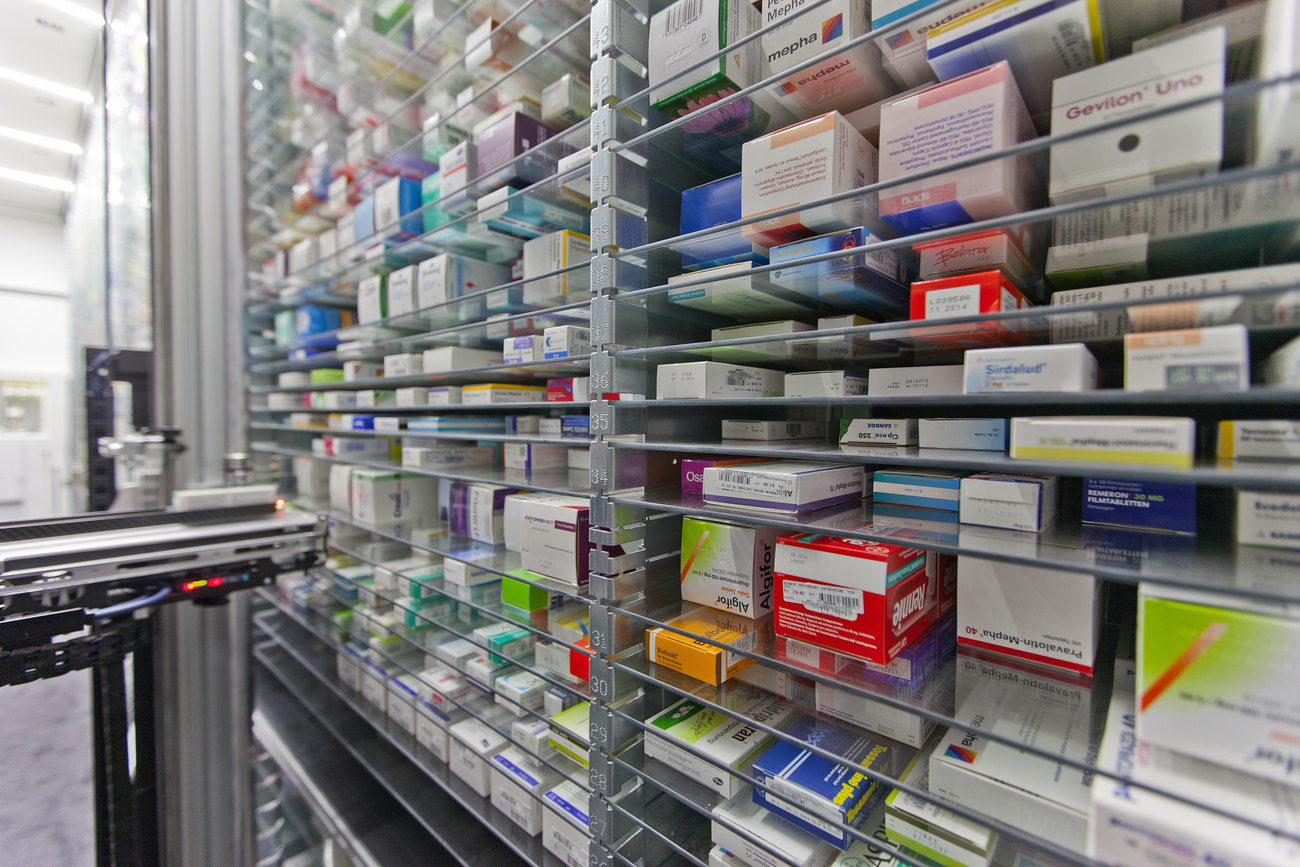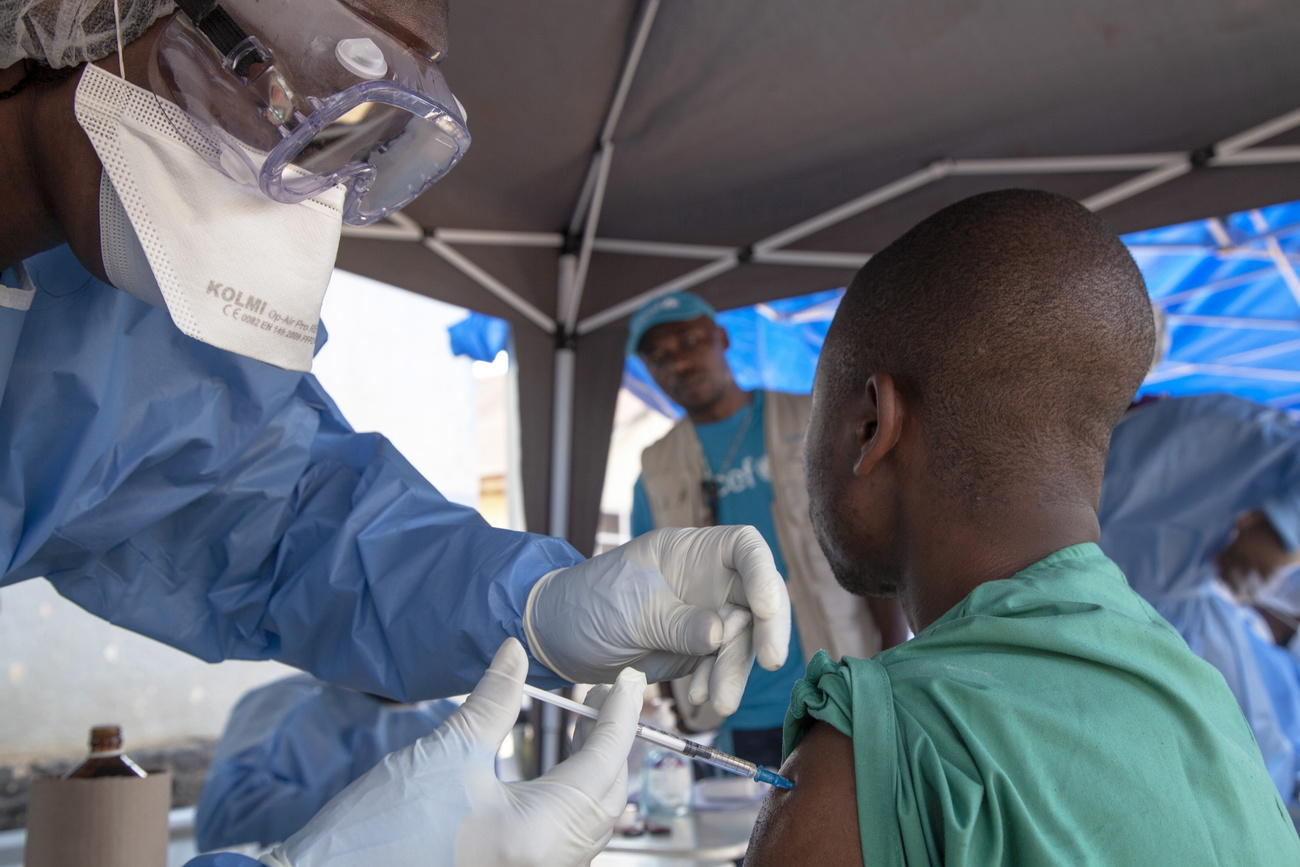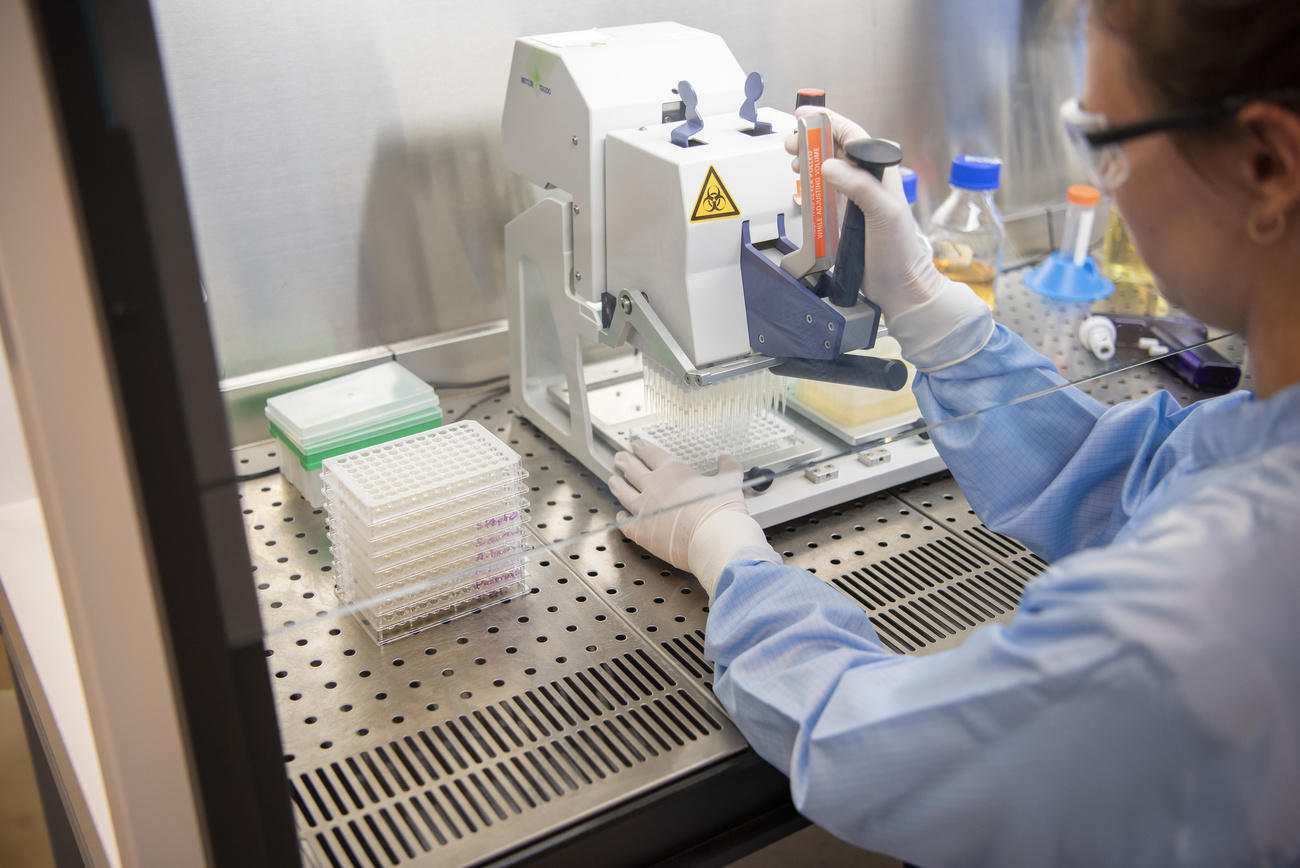Can big pharma’s money solve the antibiotics crisis?

More than 20 major pharmaceutical companies are investing nearly $1 billion (CHF940 million) in a fund to bring new antibiotics to patients. But some say it’s merely a band-aid for underlying problems in the industry.
This is the first time a fund to address a public health issue has been created exclusively by a group of pharmaceutical companies, including Swiss firms Novartis and Roche. Launched on Thursday, the so-called Antimicrobial (AMR) Action FundExternal link aims to bring two to four new antibiotics to market in the next decade.
Thomas Cueni of the Geneva-based International Federation of Pharmaceutical Manufacturers (IFPMA), which brought the pharmaceutical industry together to back the venture fund, said it was “a historic and unique initiative for more than 20 pharma companies to step up and address a major public health crisis”.
Overuse and misuse of antibiotics has led bacteria to develop defenses against the drugs, creating the need for new antibiotics. According to the World Health Organization (WHO), some 700,000 people die every year from antimicrobial resistance, and it’s expected that if new drugs don’t come on the market, some 10 million worldwide could die by 2050.
The announcement of the pharmaceutical fund during the coronavirus pandemic underlines the gravity and urgency of the crisis. Antibiotics use is on the rise as prolonged hospital stays among Covid-19 patients raise the risk of bacterial infections.
Speaking at the launch event for the fund, WHO Director General Tedros GhebreyesusExternal link called antibiotic resistance a “slow tsunami that threatens to undo a century of medical progress”.
The timing also reflects the position big pharma has found itself in during the pandemic: praised on the one hand for developing vaccines and treatments, while demonised on the other for not investing enough in tackling infectious diseases.
The antibiotics crisis is part of a larger problem facing the for-profit pharmaceutical model where drugmakers avoid research and investment in certain public health issues that don’t offer attractive returns for shareholders.
“This is a new model for public-private partnerships, using private sector investment to address public health challenges with guidance from the public sector,” said the WHO’s GhebreyesusExternal link on Thursday.
Cueni underscored that the fund is not about pharmaceutical companies cross-subsidising themselves and there is no intention for big companies to make money on their investments.
Playing investor
The fund is a welcome step forward for global health authorities. Discussions have been ongoing for years at global and regional levels on how to bridge the financing gap to prevent the antibiotics pipeline from drying up completely.
The new project puts drugmakers in the seat of venture capital investors or donors in an area where most don’t have active research pipelines. Smaller companies and biotech firms with antibiotic drug candidates in all stages of development will receive financing and technical support from big companies.
Several big pharmaceutical companies, including Basel-based Novartis and Allergan, recently stopped novel antibiotic research altogether and two antibiotic start-ups went bankrupt last year. On Thursday, Novartis CEO Vasant Narasimhan said that “finding a new drug for a resistant bacteria has proven incredibly challenging” and that he hoped that the fund would catalyse new innovation.
Novartis’ generics division Sandoz remains one of the world’s biggest suppliers of antibiotics but the company has not indicated any plans to get back into novel antibiotic research. Basel-based Roche is one of the few large companies that recently returned to antibiotics R&D and diagnostics after exiting decades ago.
According to a reportExternal link by Pew released in April, some 95% of the antibiotic products in development are led by small companies. Nearly 75% of the companies are considered pre-revenue, meaning that they have no products on the market. Swiss start-ups including Bioversys, Polyphor, Basiliea and Actelion are heavily engaged in antibiotics researchExternal link and development, some of which could benefit from the fund.
“It’s not a secret that big pharma has pulled out of antibiotics for economic reasons. They feel a sense of responsibility. We need new antibiotics and there is growing concern that remaining SMEs can’t survive,” said Marc Gitzinger, CEO of Bioversys, a biotech start-up based in Basel that is working on an antibiotic to fight highly resistant Gram-negative bacterial infections.
Stop-gap
While Gitzinger is pleased at the fund’s potential for helping companies like his with their research, he believes larger industry reforms are needed in the long term to give companies incentives to make antibiotics.
“This fund is really bridging the gap for SMEs and drug developers, but it will not be the solution. The solution in the end is a valid marketplace,” he said.
Cueni explained that selling antibiotics doesn’t offset the research and development costs. “Right now, the worst that can happen to someone who invests in antibiotics is that they succeed because then they will lose more money than if they just have to write off the research expenditures.”
While everyone agrees the overall antibiotics model is broken, there is no agreement on how to fix it. Some ideas have been floated such as a Netflix subscription modelExternal link being tested in the United Kingdom that pays companies upfront in exchange for access to antibiotics.
But there remain divisions on how to ensure global access while also providing incentives for firms to continue to develop drugs. At Thursday’s launch, Ghebreyesus offered the full assistance of the WHO to ensure access and appropriate use are included in the new fund’s vision.
These issues are priorities for Manica Balasegaram, who is the Executive Director of the Global Antibiotic Research and Development Partnership (GARDPExternal link), which is focused on late stage clinical development and ensuring treatments are used responsibly and made accessible in low-income countries.
He worries about the ‘valley of death’ that exists after marketing approval, which remains largely underfunded and neglected.
Michael Altorfer, who heads the Swiss Biotech Association, argues that governments and global health authorities – in particular the WHO – need to recognise that new antibiotics are valuable and warrant a higher price.
“As long as the WHO communicates that antibiotics must be cheap so that people in developing countries also have access, investors will leave the market.”

In compliance with the JTI standards
More: SWI swissinfo.ch certified by the Journalism Trust Initiative













You can find an overview of ongoing debates with our journalists here . Please join us!
If you want to start a conversation about a topic raised in this article or want to report factual errors, email us at english@swissinfo.ch.